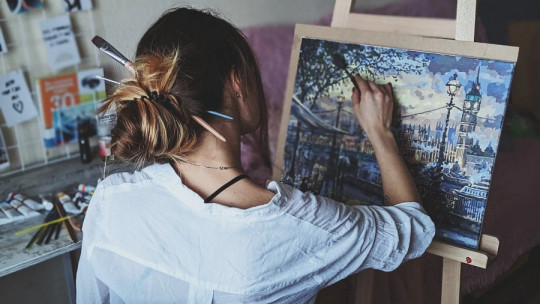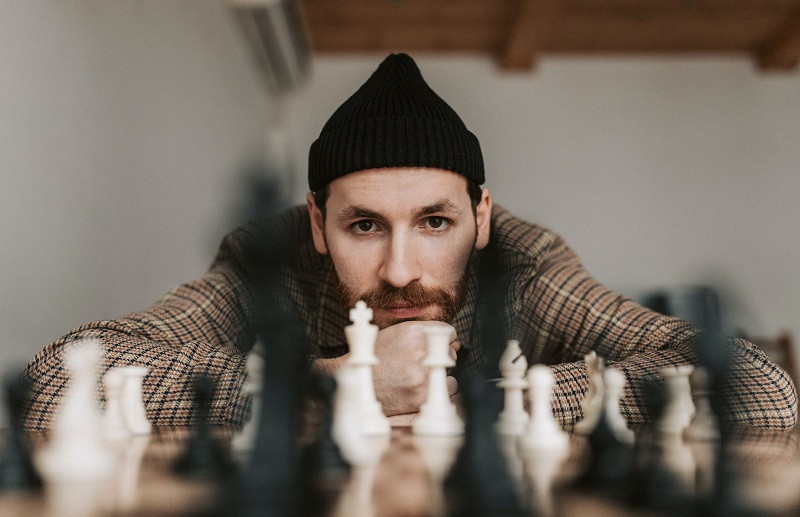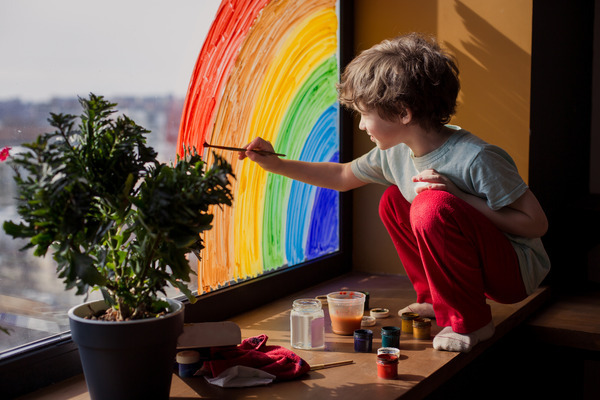
Everyone has qualities that they don’t know they have. Sometimes it happens that what we are good at is so normalized that we do not realize that not everyone has that skill or characteristic.
We have all come to this life to contribute something to the world, even if we don’t know exactly what. Knowing our talents can be of great help to us in choosing the career or job that will be our vocation.
Knowing how to discover your talent requires introspection, see what you are good at and how time flies by. Let’s see how to detect your hidden strengths.
How to discover my talent?
Everyone has talents, even if they don’t know exactly what they are. Many of our strengths can remain hidden throughout life because we do not place enough value on a skill or ability. It may also happen that we think that what we are good at is not that great, or we believe that everyone does it equally well and therefore it is not worth considering it as a talent. But really, That may be what differentiates us from others, something we are not yet aware of
Before talking about how to discover our talent, we must first understand what we mean. Talent is defined as one or more capacities that an individual has to perform or exercise an activity They are the good skills that a person has to do something specific. Each person has their own talents, varying from individual to individual. Each person has different capacities and aptitudes to carry out specific tasks or activities.
We can talk about innate talents and acquired talents. The innate ones are those that we have since we were born or at a very early age. These types of talents can be suspected more or less in the individual’s childhood, especially when a very young child is using skills that no one has taught him or that, apparently, he has acquired very easily. Acquired talents, on the other hand, are all those competencies that a person develops throughout their life, through learning and continued practice
Discovering what your skills and strengths are
There is no person who does not have any talent. There are those who say we do not have just one or two talents, but at least seven. However, it is also very normal that we do not realize what they are. But, although it is relatively common, not knowing what your talents are can work very against you, especially when you approach the age of deciding what you want to do.
Everyone wants to find a job that fulfills them, that satisfies them. A job that makes you feel good. You know what they say: choose a job you love and you’ll never have to work a day in your life. It is crucial to know what your talents are because, If you don’t, you won’t know what to do You will not find your calling and you will risk having to accept any job, one that can frustrate you a lot.
Fortunately, it is never too late to discover our qualities. As we have mentioned, it will require some effort and also thorough introspection. To help you discover what your talents are, try answering the following questions:
1. What is it that amuses you?
When we are bad at something, we usually receive negative feedback from others (for example, you are very clumsy, you do it badly, you are not good at it…). If we are doing something where we are constantly reminded that we are bad at it, it is a matter of time before we completely lose interest in it.
But the opposite also happens. When we are good at something, people tend to give us positive feedback, recognizing our achievements. Since we like to receive such recognition, which acts as positive reinforcement, and we feel good about it, we are more likely to continue doing that activity. We will consider the task for which we receive praise to be increasingly fun and rewarding
For this reason, if there is something that you really like or that you have noticed people compliment you on, it is quite likely that it is one of your talents.

2. What are your interests and hobbies?
Very related to the previous point. Think about what interests and hobbies occupy your free time, as it is quite likely that a hidden talent will be found among them. Leisure activities can give us clues about the type of profession that best suits us.
Nevertheless, It must be taken into account that having interests and hobbies does not necessarily imply having a talent for them That is, we can enjoy doing something we are not particularly good at, as long as we have fun doing it. For example, many children like to play soccer but this does not mean that all of them are going to be the next Cristiano Ronaldo. Very few of them will have the necessary talent to become a professional footballer.
3. What makes time fly by?
When we have to do something we don’t like, time passes very, very slowly. Heavy and tedious tasks make us feel like time is barely moving, going extremely, very slowly. On the contrary, When things excite us, entertain us and make us happy, time flies Tasks that entertain us cause us to lose track of time.
This perception of time is what can tell us if something is or is not our vocation. You should reflect on those activities in which you notice that time passes quickly when you are doing them, tasks that you like so much that you do not see them as obligations or heavy chores, but as hobbies. When our best talents are put into practice, we often lose track of how much fun we had.
4. What is easy for you to do?
Ease is a very effective clue to find out what our talents are. It consists of paying attention to those tasks or activities that are easier for us than others It’s that simple.
For example, if we have trouble remembering data such as the names of countries and their capitals and we also have trouble locating them on the map, geography and social sciences are not for us. On the other hand, if it is very easy for us to solve mathematical problems quickly, without even having to write them down on a piece of paper or use a calculator, calculation is among our talents.

- You may be interested: “Mental workload: what it is, how to study it and how to manage it”
5. Who do you admire?
People tend to admire others with whom we identify. This admiration can help us see what we could be good at. It is advisable to reflect and try to find out why that person is so interesting to us We can ask ourselves several questions:
- What qualities does it have?
- What do you do for a living?
- What is your personality like?
- What do we see in him or her that we have too?
The person we admire does not have to be famous. It could also be an acquaintance, someone who is part of our daily lives, or even a fictional character. The thing is that This is a person whose personality characteristics and, above all, skills arouse our deep admiration and we would like to be like her
- Related article: “The 3 types of perfectionism, and how they affect us”
Final reflection
Discovering what our talents are is complicated, but not impossible. Although it is easier to see the talents in others than one’s own, it is possible to discover on our own what we are good at by resorting to a little introspection, analysis and observation of our behavior. We can find out what our talents are by paying attention to the interaction with others, whose feedback will tell us whether or not we do a certain task well or if we are recognized for it.
The questions we have just seen are a good way to discover what your talent is. They serve to enhance our self-knowledge and will help us identify what our talents are, innate or acquired, in addition to seeing what things we are not good at The next step is knowing how to exploit them, enjoying the learning process and discovering our true vocation.








